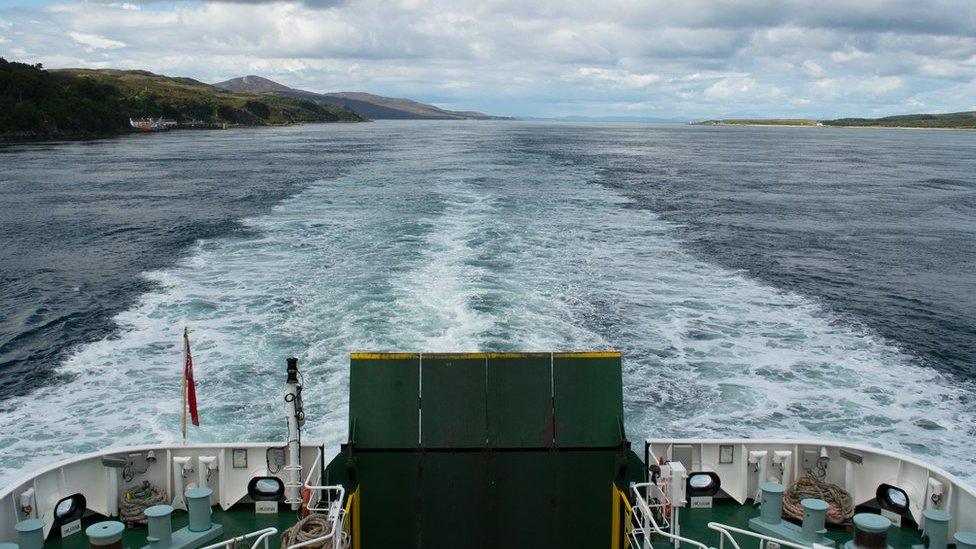Ferries to 'move away' from emergency timetables
- Published

Emergency timetable restrictions are to be lifted from ferry services for the Northern Isles and Clyde and the Hebrides.
Serco Northlink and Caledonian MacBrayne (CalMac) have been running reduced services for essential travel since March.
Increased sailings form part of the easing of lockdown restrictions.
But continued social distancing measures will see capacity on passenger ferries being significantly reduced.
In a letter to MSPs and Scottish MPs, Energy, Connectivity and Islands Minister Paul Wheelhouse said ferries would move away from emergency timetables during Phase 2 of the easing of Scotland's lockdown.
He said 2m physical distancing measures will remain in place on all boats in line with current scientific advice.
On Serco Northlink passenger ferries, which serve the Northern Isles, this requirement will reduce capacity to about 20% of normal numbers of people they would carry.
For CalMac, capacity on its Clyde and Hebrides passenger ferries will be reduced to about 17-18% of normal capacity, said Mr Wheelhouse.
CalMac is to move to a winter-style timetable from 1 July, before increasing services with an aim to "match the expected return of tourism" by 15 July.
Mr Wheelhouse said the option of CalMac running a full summer timetable was "fully considered".
It will not be put in place because of the length of time it would take to recruit all the additional staff needed, along with the effect of social distancing measures on capacity.
'Responsible judgements'
People have been asked to make journeys only if they are necessary.
Travelling to and from islands to visit family is acceptable under Phase 2, but the minister said journeys for leisure and recreation were not being encouraged.
Mr Wheelhouse said ferry operators were not being asked to enforce lockdown restrictions, adding that was the role of police.
He said: "We will, however, rely upon our operators to help us to communicate and reinforce Scottish Ministers' policy, and upon individual travellers making responsible judgements.
"This is consistent with the approach being adopted across other public transport modes throughout Scotland."